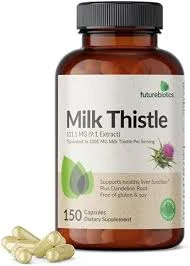
ספט . 22, 2024 21:34 Back to list
coccidiosis disease in poultry factories
Coccidiosis Disease in Poultry Factories Understanding and Management
Coccidiosis is a significant parasitic disease affecting poultry, particularly in intensive farming environments such as poultry factories. Caused by various species of the protozoan parasites Eimeria, coccidiosis can lead to severe economic losses due to decreased growth rates, poor feed conversion, and increased mortality rates. Understanding this disease and its management is essential for poultry producers aiming to maximize productivity and maintain animal welfare.
Coccidiosis Disease in Poultry Factories Understanding and Management
The clinical signs of coccidiosis can vary depending on the Eimeria species involved and the age and immune status of the birds. Common symptoms include diarrhea, which may be blood-stained, weight loss, decreased feed intake, and lethargy. In severe cases, culling may be necessary to control the spread of the disease.
coccidiosis disease in poultry factories

Prevention and control strategies for coccidiosis in poultry factories are crucial. The first line of defense usually involves maintaining high standards of hygiene. Regular cleaning and disinfection of poultry houses can help reduce the oocyst load in the environment. Providing adequate space for poultry can also minimize stress and prevent overcrowding, which is a significant risk factor for the disease.
In addition to environmental management, vaccination has emerged as a valuable tool in the fight against coccidiosis. Several vaccines containing live oocysts are available and can confer immunity to birds without causing disease. These vaccines help to stimulate the bird’s immune response, reducing the severity of future infections and the overall prevalence of coccidiosis in flocks.
Another essential aspect of managing coccidiosis is the use of anticoccidial medications. These drugs can be included in the feed or water and are effective in preventing and treating infections. However, the development of resistance to these drugs is a growing concern, making it imperative for poultry producers to rotate different classes of anticoccidials and implement integrated management programs that combine good husbandry practices, vaccination, and medication where necessary.
In conclusion, coccidiosis remains a critical challenge in poultry production, particularly in factory settings where conditions favor its spread. A comprehensive approach that includes hygiene practices, vaccination, and judicious use of medications is essential for effective management. By adopting these strategies, poultry producers can reduce the incidence of coccidiosis, thereby enhancing the health and productivity of their flocks. This not only benefits the farmers economically but also contributes to the overall sustainability of poultry production systems.
-
Premium Young Chicken - Leading Young Chicken Manufacturer & Supplier for Fresh Poultry Needs
NewsJul.08,2025
-
Enterococcus Faecalis Mold Remover – Powerful & Safe Solution from Trusted Manufacturer
NewsJul.08,2025
-
Premium Diarrhea Treatment Solutions Leading Diarrhea Factories & Suppliers
NewsJul.08,2025
-
High-Quality Blisters Manufacturer & Supplier Reliable Blisters Factory
NewsJul.07,2025
-
High-Quality Skeleton Development Services Leading Factory, Manufacturer & Supplier
NewsJul.07,2025
-
High-Quality Cockscomb Turns White Reliable Manufacturer & Supplier Factory
NewsJul.07,2025




